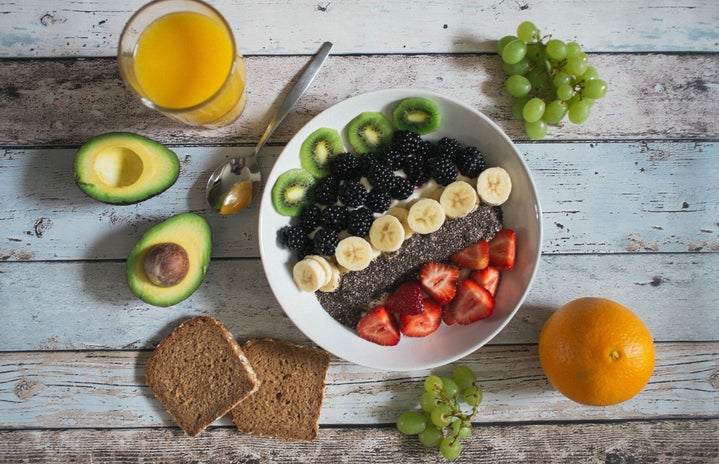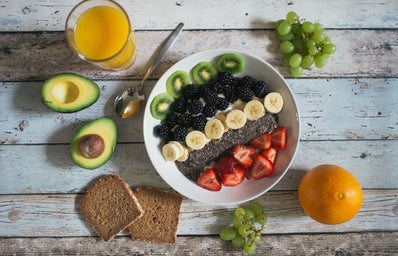Over the last few years, veganism has been steadily increasing in popularity. Many influencers and celebrities have pledged to live plant-based; college campuses have set up vegan food stations, and Meatless Mondays are sweeping the country. Arguably, there are many benefits of veganism that justify its popularity. According to Walter Willett, a nutrition expert from Harvard, veganism is linked with a lower risk of significant health problems (such as heart disease and type two diabetes), and it is beneficial for the planet because it reduces cattle emissions of carbon dioxide and methane (gasses that contribute to climate change). However, despite the health benefits, there are still hundreds of thousands of Americans who do not follow this lifestyle. Of course, some individuals cannot sustain such a restrictive way of living, but is there another factor that deters many people from veganism? Ultimately, is veganism elitist?
Factors that Make Veganism Unrealistic
Often, those who follow veganism promote organic fruits and vegetables as staple parts of their diet. However, though these foods are nutritious, they are also expensive. According to the article “Why Eating Healthy is so Expensive in America,” by Dorotea Sotirovska and Elizabeth Philip, organic and fresh fruits and vegetables are so expensive because they are handpicked and rely on human labor instead of machines. Unfortunately, because of the high expense, many Americans cannot afford these foods. An alternative is freeze-dried foods, which (though they might not be as fresh) still contain the nutrients found in organic fruits and vegetables. Still, this is assuming that Americans have the money to spend on fruits and vegetables. Though these foods are nutritious, they are not the most calorie dense. If Americans are forced to make a decision between choosing fruits and vegetables or foods that are more filling and easier to prepare, they will have to fill their carts with foods that (though “unhealthy”) are going to feed more of their family.
There are millions of Americans who do not even have access to a supermarket. According to the Association of American Medical Colleges and the USDA, 54 million Americans are food insecure, and 23.5 million of those Americans also live in food deserts: areas plagued by fast food places and no grocery stores. One of every six Americans struggles to even eat every day. Obviously, it is impossible for people to concern themselves with plant-based food if they cannot afford to eat. Moreover, according to the article “Food Deserts and Inequality” by Jeremy Ney, many people living in these food deserts do not have a car or access to public transportation. Groceries also tend to be more expensive around food deserts. Ney states that milk prices are usually 5% higher, and cereal prices are 25% higher. Most people have no way to travel more than a few miles away from their homes, and those that can are unable to afford groceries. If they can get any food at all, it usually comes from fast food chains that are inexpensive, unhealthy, and certainly not vegan.
For those that do have access to groceries, plant-based alternatives to meat are extremely expensive. According to an informational pamphlet published by the Good Food Institute, meat alternatives are twice as expensive as beef, three times as expensive as pork, and four times as expensive as chicken. With those prices, especially in the years right after the COVID-19 pandemic, it is not surprising that it is difficult for many Americans to afford these alternatives. Consumers rank price as the second most important deterrent from buying a product or item, so it makes sense that many Americans do not want to (or simply cannot) buy plant-based alternatives. For those who believe that plant-based meat alternatives are requirements for veganism, this lifestyle seems entirely elitist. Only the most privileged Americans have the means to eat fake meat.
Although many people think of veganism in terms of diet, it is also a lifestyle. Vegans omit all animal products from their lives, including certain beauty products, clothing items, and even candles. Often, animal-based clothing is more expensive (such as leather or suede), but vegan shampoos, vegan conditioners, vegan lotions, vegan beauty products, and even vegan candles tend to be expensive. Yes; cruelty free and vegan products are better for the environment and for animal welfare, but because of factors like the shorter shelf life, ingredients, and manufacturing process, they are much more pricey. Therefore, it is unsurprising that many individuals cannot justify living a lifestyle that they are not able to financially sustain.
An Argument for Affordable Veganism
Today veganism is associated with elitism, but in the past eating meat was a luxury. According to the article “A History of Food” by Tim Lambert, only the rich were able to afford eating meat in most early civilizations. Commoners subsisted off of bread and vegetables, and any livestock was a source of dairy. It wasn’t until the 1900s that ordinary people were able to start consuming meat, as there were new inventions to keep it fresh. Therefore, veganism hasn’t always catered to the wealthy.
Even in modern times, there are ways to make veganism less expensive. The Ecologist published an article by Elena Orde detailing why veganism is sometimes more affordable than a meat-based diet, and it states that there are protein sources (such as canned chickpeas, lentils, and baked beans) sold in grocery stores that are cheaper than most meats. Therefore, it is possible that plant-based proteins are the most affordable source of protein. The idea that veganism is elitist stems partly from the steep cost of plant-based meat alternatives, but those alternatives are not necessary to provide someone with the essential protein they need.
So is veganism elitist?
Today, there is no doubt that veganism caters towards people with privilege. Only those who can afford to eat vegan meat, buy vegan beauty products, and go to vegan restaurants promote this lifestyle, and millions of Americans face food insecurity. For many, the main priority is to feed their family. Of course, there is nothing wrong with choosing a vegan lifestyle, but it is imperative to remember that this is not attainable for everyone. At the end of the day, going vegan is a choice that only certain people are fortunate enough to make.


